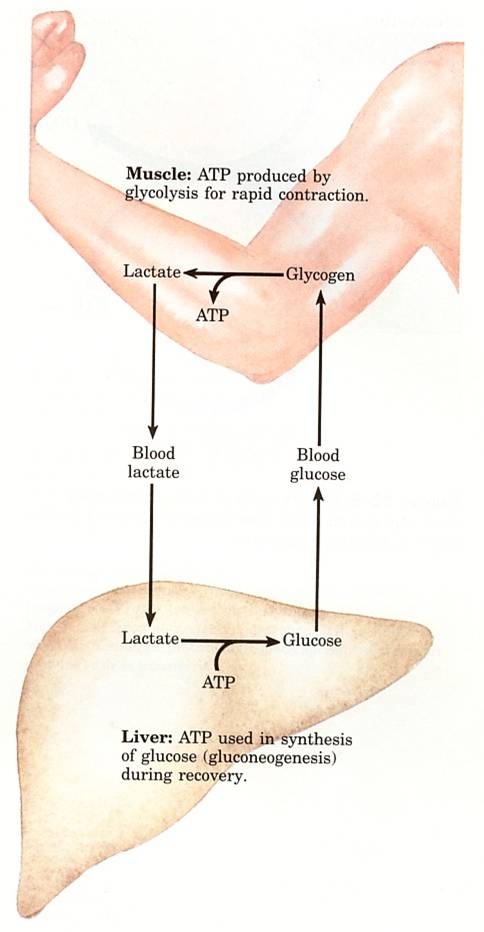Cori cycle
Cori cycle is the metabolic process of converting
lactate to glucose in the liver. This picture indicates how this take place.
In rapid contraction of muscles produce lactate which then moves to the liver
through blood stream. Converted glucose moves to the muscle via blood glucose.
In the muscles glucose is converted to glycogen for storage, which is utilized
when need be by rapid muscle contraction.
Glycogenolysis is the process of synthesis of glycogen. The process of
glycogenolysis takes place as shown in this picture.
Importance of
cori cycle are; (1) Prevent acidosis in muscles, (2) Produces ATP. The production
of ATP in this is important since can be utilized in the glycolytic pathway
hence increase additional step.





Comments
Post a Comment